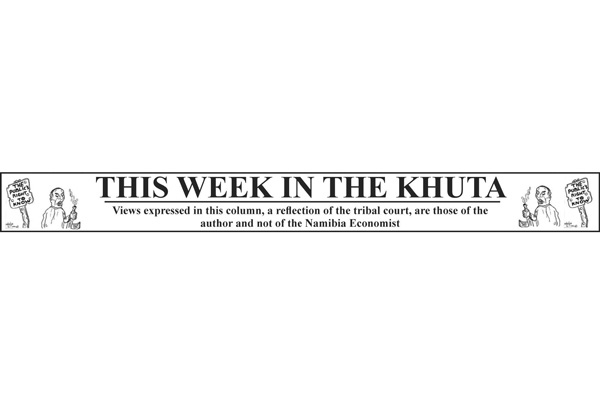
Zimbabwe relieved from tyranny – room for the re-instatement of the SADC tribunal

By Gerhard Erasmus, Associate at the Trade Law Centre, tralac, in Stellenbosch
Professor Erasmus is one of three constitutional lawyers who drafted the Namibian Constitution which was approved and ratified by the Constitutional Assembly between December 1998 and March 1990.
The jubilation in the streets of Harare is one of the most telling aspects of the ousting of Robert Mugabe as President of Zimbabwe. Zimbabweans rejoiced because the shackles of political tyranny and economic devastation have been removed. A new day has dawned. Reconstruction and reconciliation are now possible.
Zimbabwe has gained a long-overdue opportunity to restore democratic rule and rebuild its economy. Put simply; Mugabe’s removal offers the prospect to become a normal state. It can serve its people again; which has demonstrated a remarkable resilience under Mugabe’s rule. Zimbabwe can also, over time, revitalize its economic potential and regain its rightful place in the regional and international arrangements to which it belongs. A stable Zimbabwe will bring benefits to the whole Southern African region. This will be a daunting task but neighbouring nations and the broader international community wish it well. We all want Zimbabwe to succeed.
What happened in Harare last week and why did it take so long to remove Mugabe? The act of removing him has been something akin to a “peaceful constitutional coup d’état”. The text books on political science will probably take note, or classify this event as a unique combination of limited military intervention and a party-political rescue mission. The fruits of this remarkable event need to be consolidated through proper democratic elections and full legitimacy. Ultimately the people of Zimbabwe must choose their government. There will probably be a period of interim consolidation but the danger of disappointed expectations should not be ignored. What do Zimbabweans now want and deserve?
The havoc of Mugabe’s rule has been an open secret for years. The governments in neighbouring countries and elsewhere have been fully aware of the ruin brought about by Mugabe’s policies and his dictatorship. Millions of Zimbabweans have become refugees (a matter which has caused tension and xenophobia in South Africa), the national currency first exploded and then disappeared, there was rampant corruption and exploitation (the Zimbabwean police has a particularly bad reputation), while regional agreements (the SADC Protocol on Trade in particular) have flagrantly been violated. However, there was no constructive effort (Botswana voiced mild criticism from time to time) to engage with the real problem. Sanctions by Western governments never generated sufficient global support or United Nations backing. Robert Mugabe was, for some, an icon! Some even lauded his ruinous land reform policy; which, by the way, caused the demise of the SADC Tribunal. It is no surprise to read media reports that the new President has identified the reform of the land reforms of Mugabe as a priority.
Many African political leaders have been complicit in what has happened for so long. Stolen elections offered an opportunity to show respect for democracy and the rule of law but resulted in the opposite. Continued support for Mugabe at critical moments allowed the prolongation of his paranoid exploitation of that nation. It comes as no surprise that some of them (and apparently SADC too) are not welcomed back with open arms.
There are lessons here. Clinging to incumbency at all cost should not inspire others. The evidence that respect for the rule of law in regional trade and integration arrangements offers a vastly superior benchmark has become irrefutable. It remains a mystery why African governments steadfastly refuse to allow dispute settlement by impartial forums to become part and parcel of regional trade arrangements. Such disputes can be confined to technical aspects and do not signify disrespect for “sovereignty”. African states accept the logic of rules-based trade governance in the multilateral context of the WTO but refuse to allow the benefits of certainty and predictability for their own firms, traders, investors and service providers.
The Regional Economic Communities with protocols and programmes about regional political stability should revisit their mandate, priorities, resolve and track record. SADC’s record in Zimbabwe (and elsewhere) in respect of the monitoring of elections is a cause for concern.
In a few weeks, the elation of 21 November 2017 will be replaced by the urgent business of reform, stable governance and meeting expectations. It will not be an easy task and there are no quick fixes. Zimbabwe’s economy will not return to what it used to be. The regional and international landscapes have changed too much and the domestic destruction has been too vast. However, Zimbabwe has the undeniable human and natural resources to rise from the ashes of Mugabe’s rule. It should be supported by all who share in the joy of this week’s developments in Harare and who wish it well.
https://www.tralac.org/discussions/article/12448-a-new-dawn-for-zimbabwe.html?











































